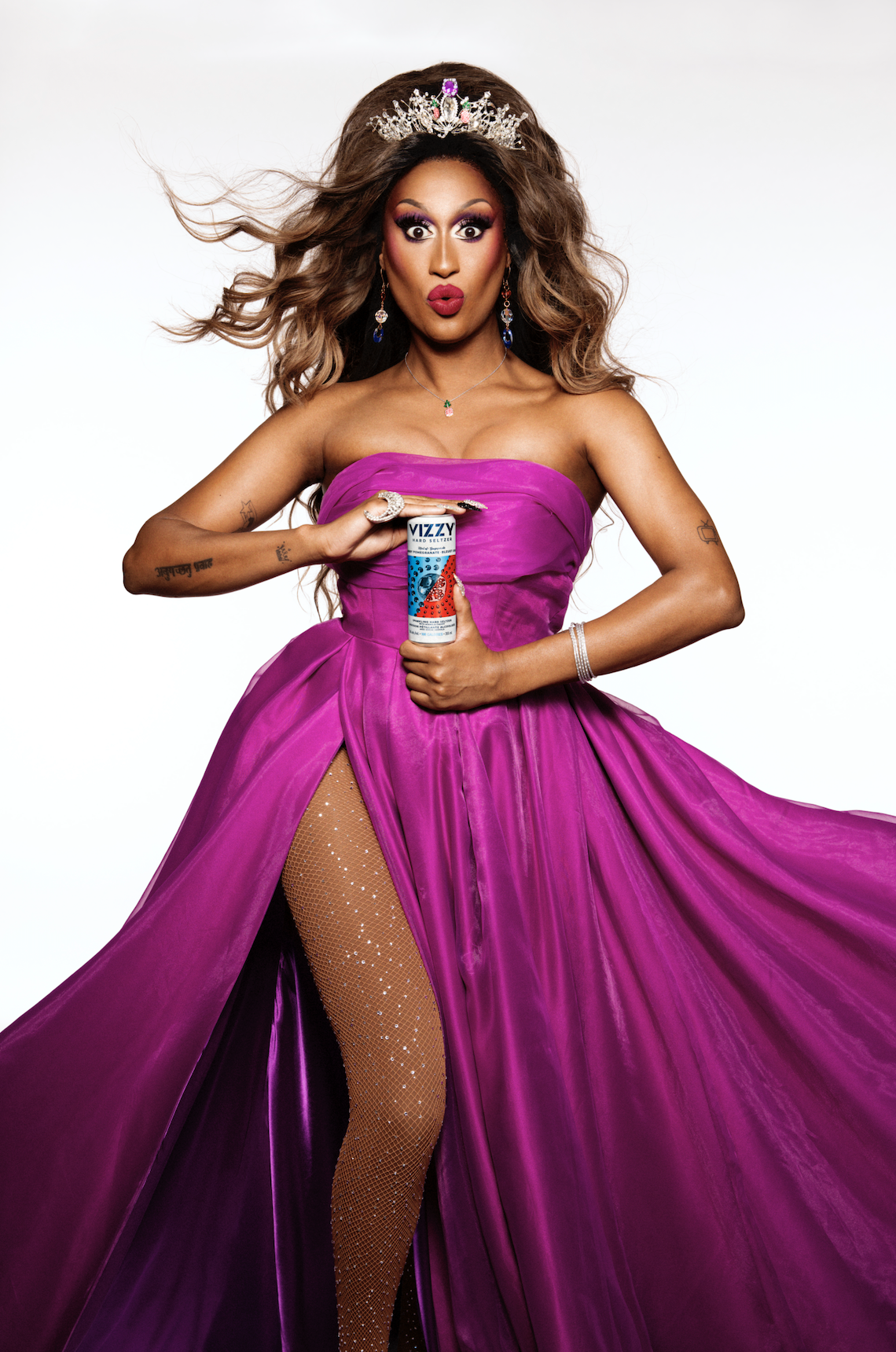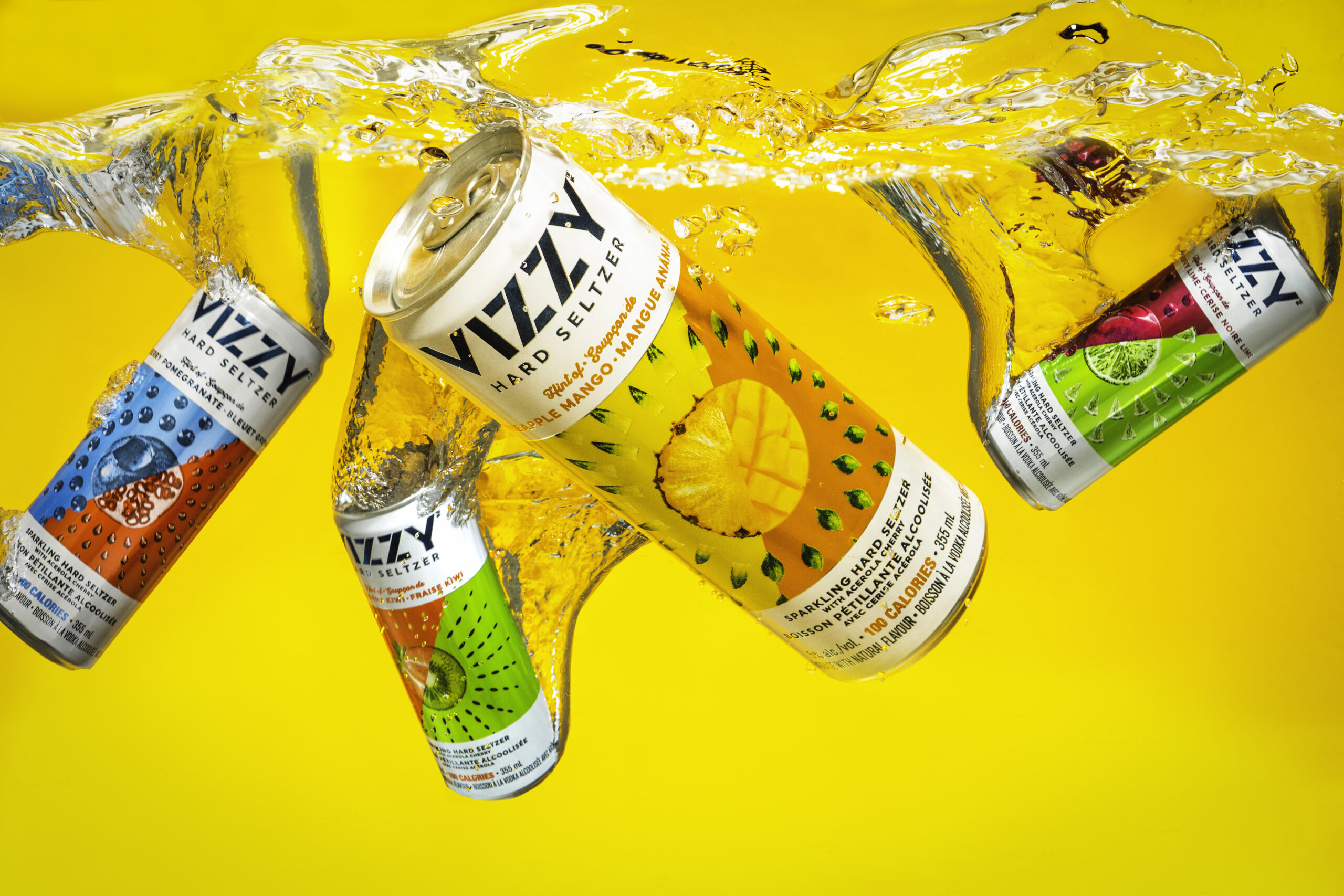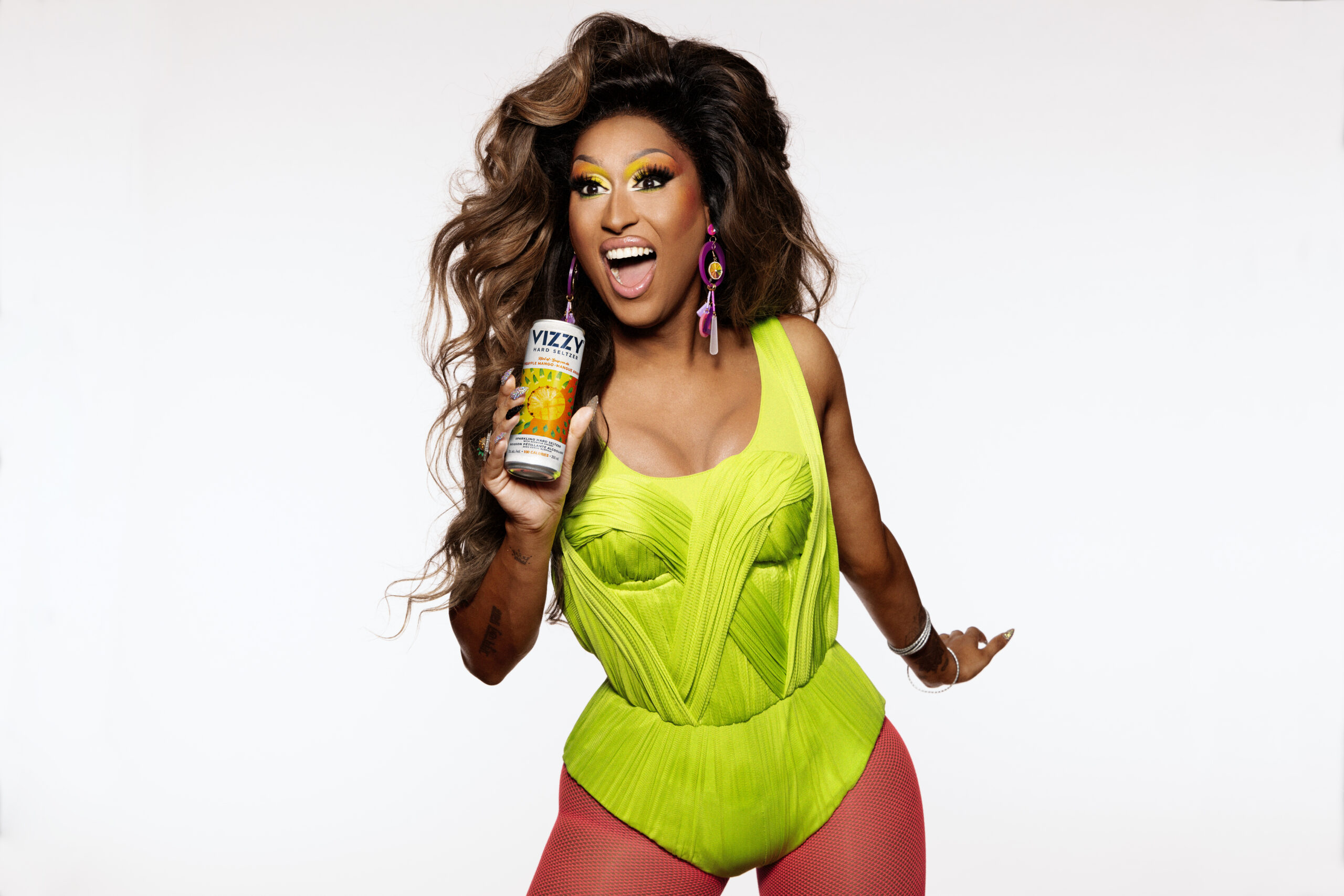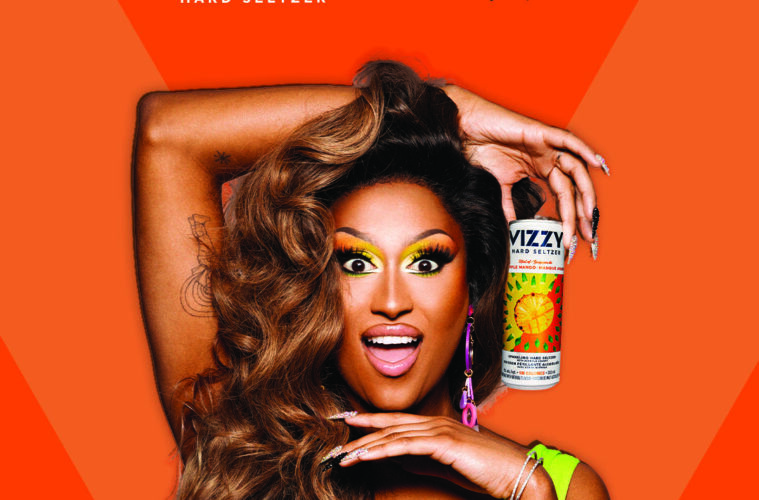Last year, Queen Priyanka won the first-ever crown in Canada’s Drag Race. Besides this huge accomplishment, her win meant the world to Priyanka due to the milestone it signified in terms of diversity and representation. Now, she is working together with Vizzy Hard Seltzer as their Community Impact Director for a special project this Pride Month. We had the honor to chat with Priyanka about personal fulfillment, purpose, representation, visibility, and the #Vizzybility Project.

Courtesy of Vizzy.
The ‘Vizzybility Project’ seeks to give visibility to queer artists and uplift their art through a creative grant program providing: funding, individual mentorship from Queen Priyanka, and national visibility placements in mass media for art projects. This joint project between Vizzy, Priyanka, and the Queer Collective, was born out of the fact that more than 69% of LGBTQ+ Canadians do not feel represented in the media. Thus, the Vizzybility Project is offering a great opportunity for four talented diverse LGBT+ applicants, who can each win a grant valued at approximately $35,000 to boost their art and maximize its exposure.
The most important lesson to be learned from Priyanka and the Vizzybility Project is that you can be who you are authentically and be celebrated for it. This is something she consistently preaches throughout her trajectory in Drag Race Canada’s first season and in everything she does.

Courtesy of Vizzy.
According to Vizzy’s Marketing Director, Leslie Malcolm, the company is all about finding pride in what makes it unique. With Acerola Cherry inside each can, Vizzy offers four dual-flavors hard seltzers including strawberry-kiwi, pineapple-mango, blueberry-pomegranate, and black cherry-lime. “Helping to make someone feel seen for their whole self, differences and all, is true to our DNA and we look forward to making a long-term and positive impact to the vibrant LGBTQ+ community in Canada,” says Malcolm.
You can apply to the Vizzybility Project here.
Watch our interview with Priyanka here or read the transcript below.
Have you been lately?
I’ve been good! Today I’m celebrating my birthday, happy birthday to me! Even though you might watch this and it’s not my birthday anymore… Still, you know, I think it’s important that you really live every day like it’s your birthday and celebrate your life because being alive is amazing. Right?!
After changing career paths, leaving the children’s show to Drag Race, how did you feel? How did this change influence your life?
Oh my goodness, I was so scared to quit my kids’ TV job, go compete in Drag Race, and not know what happens. I could have been the first one that was at home. I could have been sent home in the middle. Maybe the fans wouldn’t have liked me, I don’t know! There’s just such a risk, but– the saying that’s very like, I think it’s “risk brings reward.” It’s very that– changing career paths and really taking a chance on yourself because you want happiness in your life is so important. I wasn’t fulfilled at that job, and taking the risk and doing drag full-time is so fulfilling because, at this point in my life, I don’t even feel like I’m doing drag anymore. I just feel like I’m entertaining people. And I’m so happy to be able to use this outlet to do it. So, it’s risky, but I’m happy that I did it.
As a Canadian drag queen with South Asian heritage, what did participating in Drag Race, and winning, mean to you?
It means everythiiiing! It’s like so important to have that representation, that visibility in, you know, mainstream media, and for me to storm the stage in that beautiful Bollywood gown that I wore for that finale, it’s like, there are so many people that don’t normally see themselves in the media and on TV that they finally got to see themselves on TV so I’m happy that I was that outlet for them because I’m very proud to be that for people.
What advice would you give to queer people who feel invisible?
You know, I think that if you don’t see yourself being represented, know that that’s because you’re the representation of that and know that we’re making strides in the media and we’re doing what we can do right now to have more representation out there. To know that if you feel alone, you’re not alone because there’s someone that’s just like you going through the same thing, and to know that you have your chosen family that you need to rely on.
What do you feel when you are in drag? What does drag allow you to do, or feel?
It makes me feel so powerful. I mean, the coolest thing about being a drag queen, is that even when I’m not in drag I feel more powerful because there’s such a statement being made about being a male that dresses up in females clothing for entertainment. It makes me more confident as a boy because I’m really saying like “f– you” to the people that called me “Oh, you’re so girly” growing up. You know, like those “you have a girl’s voice!” I’m a lot like, “I’ll show you a girl!”, you know? So, it makes me feel powerful, in both aspects of my life.

Courtesy of Vizzy.
How would you describe your drag aesthetic? What makes Queen Priyanka unique?
I would say that I’m a pop-star-icon-diva. That’s very my aesthetic and what makes me unique is that, although I look like a pop-star, I’m also just as chaotic as a normal person. So, what do you do, what do you do.
What does your role as Vizzy’s Community Impact Director involve?
Oh, it’s so cool. I got to work with Vizzy to develop this entire campaign around how they’re going to launch this first-ever hard-seltzer with Acerola Cherry in it, and they worked with me and Queer Collective to develop the Vizzybility program, and it was exciting because, you know, I have my mentors in my life, and now I get to be a mentor for so many artists across Canada.
How do you feel about the potential impact of the project?
I think it’s incredible because there are so many artists out there that don’t have that visibility. 69% of LGBTQ+ Canadians feel underrepresented and I’m happy that I’m using my platform to give more people a platform to be that visibility for people.
And how would you invite people to participate in the visibility project?
Well if you want to apply it over to vizzybility.com and apply. Send in a short video saying like, why you want the Vizzybility program to help you. And it’s such a big thing to apply for and just show us how passionate you are about your art, the same way that I’m sitting here in drag promoting my video and I edited the video and I, you know, wrote the song and put in all that hard work and that heart to the art. Show me that in your video too, because you’re an artist too and your art is valid.

Courtesy of Vizzy.
What are your plans for this Pride month?
This pride month I’m hosting the 40th anniversary of the Toronto Pride, I launched the Vizzybility program, my album comes out this summer, I have music videos coming out… I’m doing a lot!
Besides your well-deserved win, what will you always remember about your experience in Drag Race? How would you describe the overall experience?
I’ll always remember that no matter how planned or prepared you are, sometimes things happen that are out of your control, and it helped me let go a lot and my overall experience was incredible. I mean, I won! (chuckles). I had a great experience and I made really great friends.
Which of the Drag Race challenges was your favorite one?
The girl group challenge because I love girl groups, like all my music off my [upcoming] album is like, inspired by girl groups, and I love, love girl groups. The girl group challenge and I won that week, so… And I did not like doing Snatch Game so don’t even, don’t even! I hated it, I hated it! So bad. But it’s fine, I wasn’t bad at Snatch Game, we wouldn’t have gotten that iconic I Drove All Night lipsync so, you’re welcome, you’re welcome world!
Thank you! And finally, how can others make things better for the queer community now in pride month?
Education is so important, I remember when I first started drag, my mom was hoping that it was just going to be a phase. And now, my mom sells my merch, wears my merch, comes to all my shows, is so involved in my career. And she told me that, you know, although she was hoping that it was a phase, she didn’t want to present that to me off the top because she really didn’t want me to feel pressured and judged, and that’s what everyone has to do. Like, use my mom as the example, as like you’re gonna have your reservations and you’re gonna have your judgments based on what society has taught us growing up, but just educate yourself and have an open mind and open heart and make everybody feel loved, you know be spread love and positivity all around because if you put it out there, you’re going to get it back.


